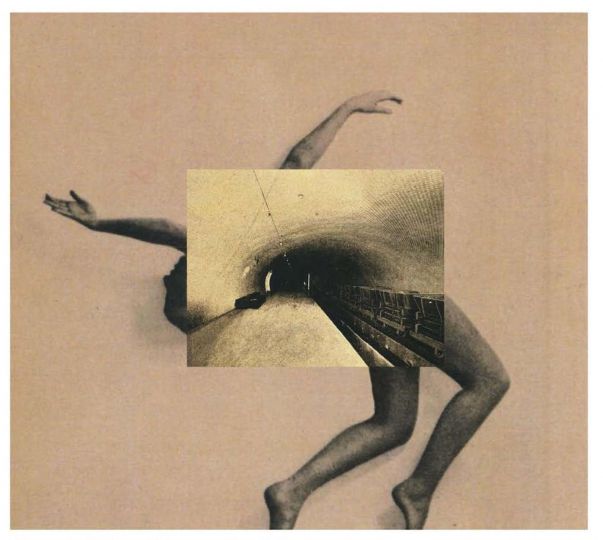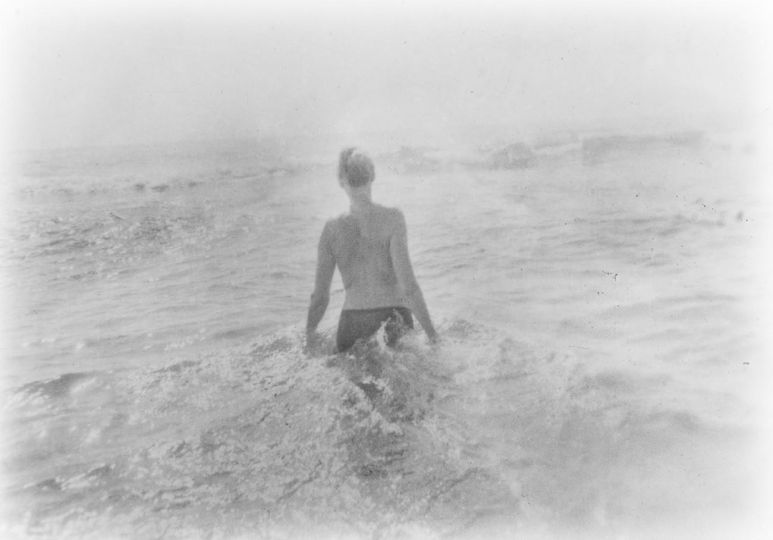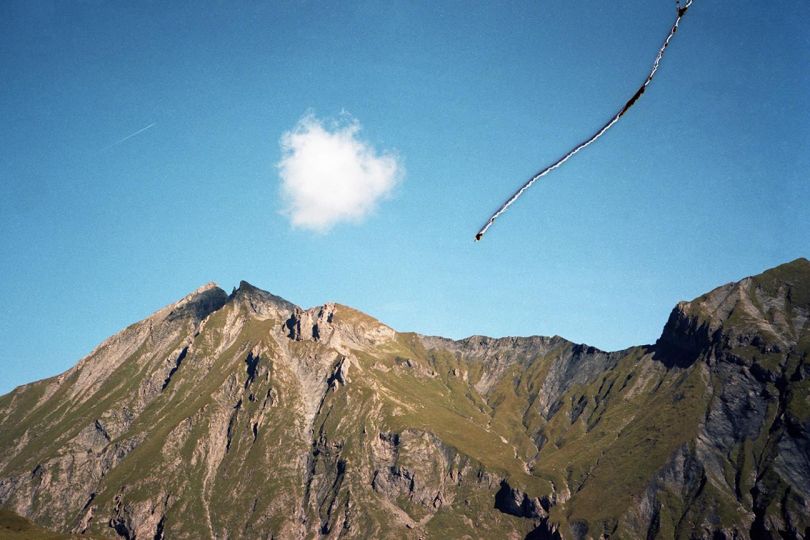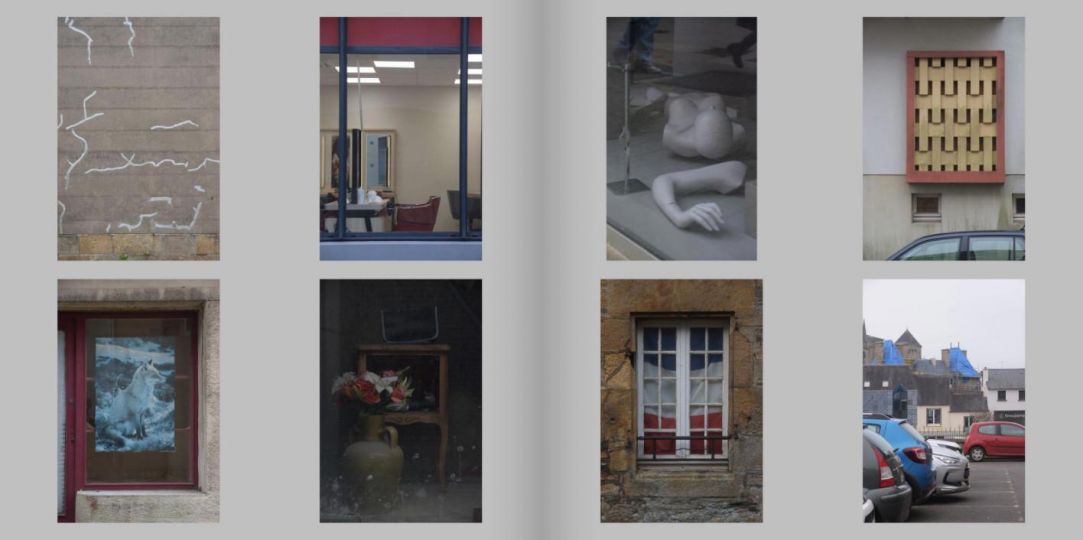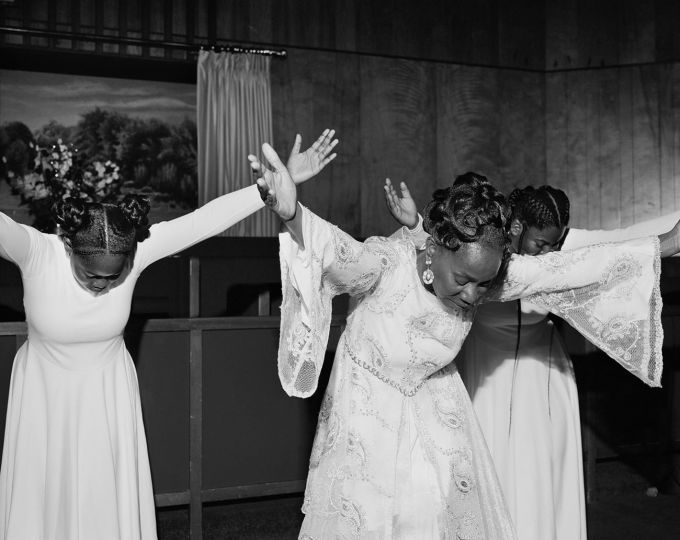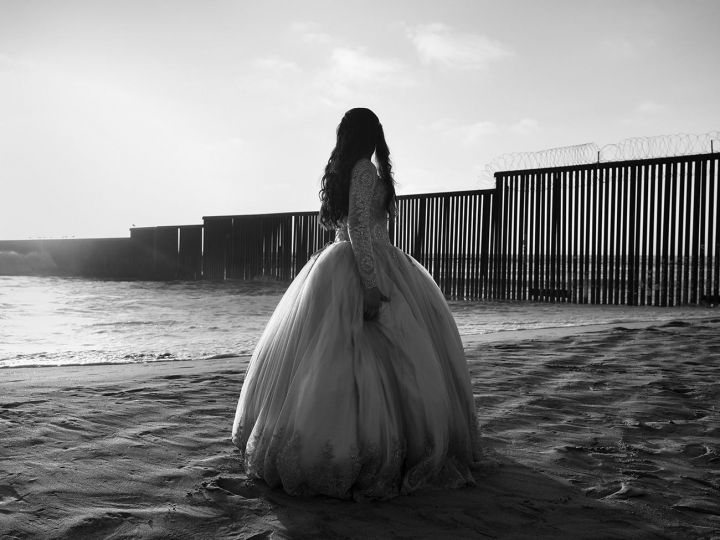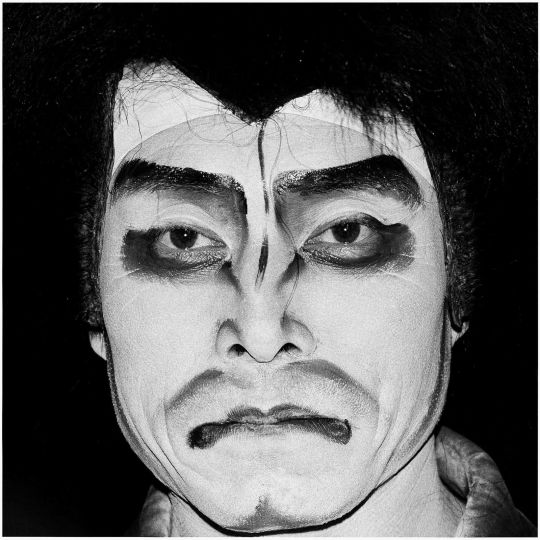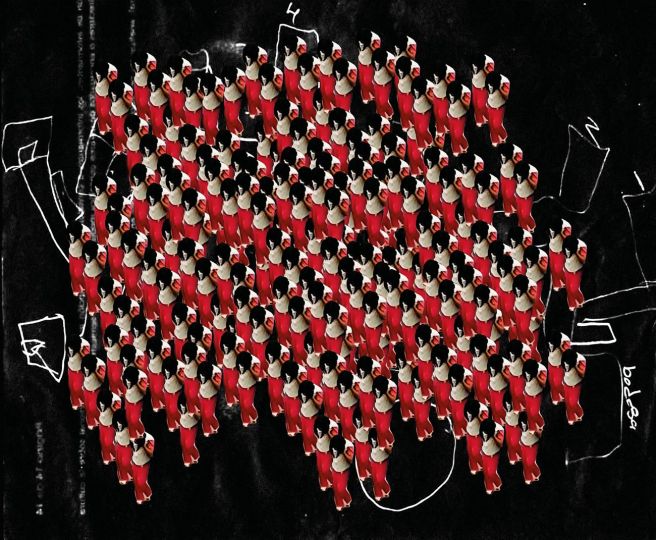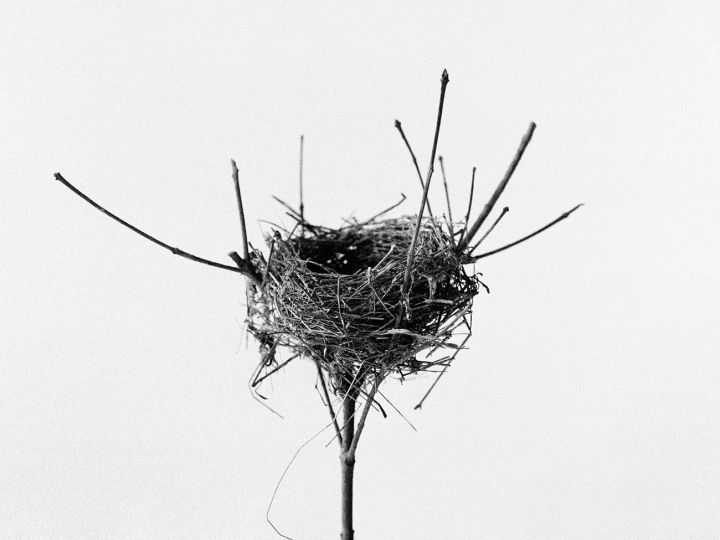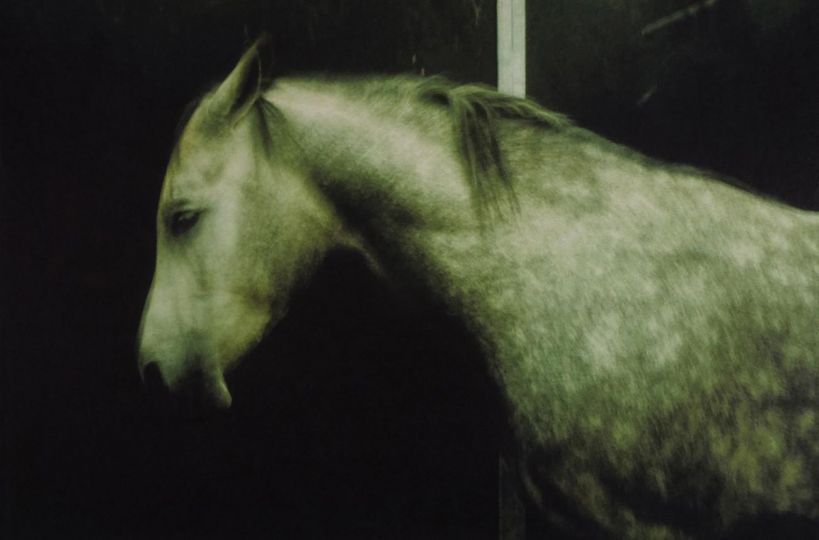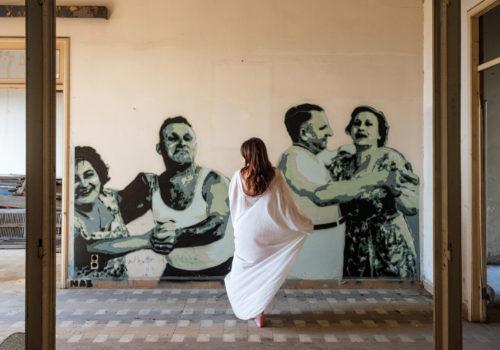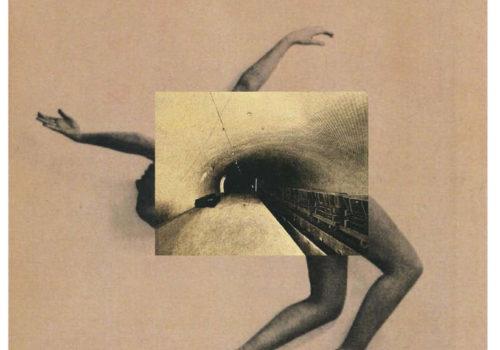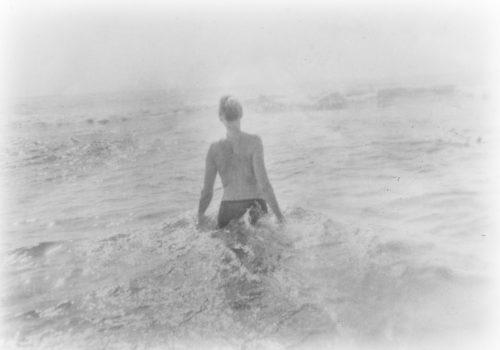Interview with Linda Al Khoury, Curator Festival de l’Image, Amman
Born in 1979, In Amman – Jordan, Linda Al Khoury was fascinated by photography from her youth and after a few years of experimenting and working in photography, she decided in 2007 to make her own dream a reality, and established one of a kind center for photography in “Darat Al Tasweer”. Currently, she gives courses, teachs and enjoys Photography. As a young defender of the photographic cause, she works hard for the emancipation of this medium. As chief curator for the Image Festival, we wanted to now how she viewed her post. We met her at the opening of Mohammed Nayef exhibition at the Fann wa Chai, a sub-branch of Darat Al Tasweer gallery.
Fanny Lambert: What does it mean to be the general curator for the Amman Image Festival?
Linda Al Khoury: The general curator of the Festival has a lot of responsibilities, takes care of every thing related to the festival, starting with choosing the photographers, venues, printing, framing, hanging… all the process to build a complete event, dealing with all the details, big and small.
FL: You are a photographer yourself and a teacher, is that relevant in the way you carried off this assignment?
LK: When they first approach me from the French Institute, they came to me with the idea of dedicating the month of March to the Image, they asked me to be one of the photographers exhibiting and through my contacts with the students and the photography community in Jordan to collaborate with them and be responsible of the Jordanian part of the festival. So yes, being a photographer and a teacher,is what made me be part of this event.
FL: How decisive is it to be a part of the jordan photographic scene?
LK: The Photography scene in Jordan is not strong yet, it is a bit hard to get an income from photography, we have a big competition , not necessarily a quality competition, and lately I have been avoiding working in the commercial field as it’s becoming harder, anyone holding a camera calls himself or herself a photographer, and the market is paying less! So I’m trying to stick to teaching and the art and personal projects. It is hard to just put all the photographers in Jordan and compare, we have a huge gap, between what we are doing now, and what the others (commercial or hobbies) are doing.
FL: About the artists you chose to exhibit, did you pick them for their affinity with the theme or was there some other criterias?
LK: As photography in Jordan is kind-off new, we have two ways of choosing. First we have the new photographers (new in terms of art). Most of these photographers are from the group of Darat Al Tasweer, so they need guidance, to make sure that the quality Is what we are looking for, they develop their ideas under the theme, and I follow up with them until the work is ready. This way helps these photographers , some of the solo exhibitors this year started with us the first year with a few photos in group shows, and each year we have new names. The second way is the Photographers approached for the venues, first we need to make sure the work is related to our theme, then, we consider the quality of the work. Regarding the french photographers the Institute usually approach photographers with work related to our theme so the main thing is the relation to the theme and the quality of the work. For me, it’s not about quantity, it’s always about quality.
FL: The question I will ask now I asked to Charles Henri Gros in an interview we had before : Could you explicit this year’s chosen theme : “Macro and I”? How was that theme chosen? How much does it refer to Jordan’s geographical position?
LK: Macro & Me is a wide title, many projects, ideas, thoughts could fit under it, it’s a bit philosophical, it is the relation between the person and what is bigger around, it could be touchable or not, it reflects on the space, scale, size, age, and more.. so with the eyes of the photographers we were able to view different aspects of “Macro & Me”.
The theme was discussed at the beginning in a meeting, last summer, with Charles-Henry and Rachel from the French Institute. The idea was suggested by Charles-Henry, and after the meeting and some discussions with photographers we decided it would be our theme for the Image Festival # 3.
To conceder Jordan’s geographical position was last year’s theme “RE-Evolution” it referred more on what is happening in our region, but at the same time this year we had work related to the conflicts around “the Zaatary camp” and “Palestine” so it was not as clear as last year but photographers could combine the theme with the situation, facing the war in Syria, and facing the distance for Palestinians and their home land.
FL: Two awards have been given to Rasha Amer and Mira Khleif on march 26th. Was a specific jury summoned? How did the deliberations go?
LK: Yes, the awards of the Art Photography Competition was selected by a Jury : Charles-Henri Gros, Mohammed Nayef and me. The Jury had four criterias : the relation to the theme, the composition, the technique and then, all over beauty. Each criterias rated from five points and the total got us to the final discussion on the winners.
FL: It seems that you are very much involved in the development of photography in Jordan.
Charles Henri Gros says you have done a huge lot for that cause and you’re the source of a formidable development. What are your ambitions for photography, both on a global level and in your country?
LK: When I first started to consider photography as something serious in my life as art and career, I faced a lot of borders here in Jordan, I was studying accounting at the university and was extremely interested in learning more about photography, so I took a free course in photography, black and white, and darkroom, I was very happy about it, I used to go to the library to read books about photography at the university it was forbidden for me to inter as I was not an art student but at the time they allowed me to get in, read in the library but not to borrow books , and there were only few books to read.. I wanted to learn more, and didn’t find any place to take more courses! Even to practice in some studios was hard, so no place to buy a photography book, take a course, or even learn from professionals! So I went to Lebanon, and studied at the university as a free student, for five semesters.
When I returned, I started teaching photography and worked as a commercial photographer, and after a few years experience, I decided to make my own business “Darat Al Tasweer” . When I started, I wanted to make a space for photography lovers to gather , learn photography and enjoy their passion . I made sure to have a good book collection(500 books) so people wanting to read about photography could find the place to do so, with the aim, of creating a community that considered photography as Art ..
I have talked a lot I know!!.. But to make it easier to pass my message, my ambition for photography in Jordan is for it to be considered as art , technology is moving fast, this is making photography available to anyone! That will affect the photographers in the future I think!
FL: The future of the festival seems to be in your hands. Dialogue with neighboring countries, with Europe (the presence of “The Night of the year ” from Arles is a vibrant example) or with the international community, what are your ambitions, what will you try to achieve next?
LK: I believe in a solid base, and we have it . I think in time it would be great to make it more international, include more nationalities, what we have now is great, I’m sure in time it will become bigger , but the most important thing is to keep what we have, to make it move forward .. And in time, we will be a big name in the world of photography and people will join us from different countries to be part of this festival. We have started and we will continue.
Fanny Lambert


